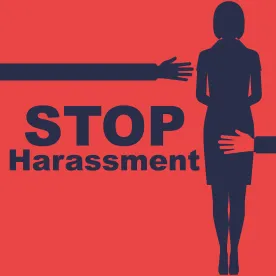In a surprising move, Texas Governor Greg Abbott signed into law three bills: Senate Bill 45 (“S.B. 45”), Senate Bill 282 (“S.B. 282”), and House Bill 21 (“H.B. 21), that will extend protections for sexual harassment victims in the workplace. Each bill took effect on September 1, 2021, revising vital parts of the Texas Commission on Human Rights Act (“the Act”). Key changes include expanding the definition of employer to include businesses with at least one employee, broadening the class of tortfeasors to include individuals such as supervisors for failure to take immediate corrective action, increasing the statutory filing period from 180 to 300 days, and prohibiting the use of taxpayer dollars to pay sexual harassment awards against appointed or elected officials and their staff. While the standard for other forms of discrimination such as race, national origin, sexual orientation, and religion have gone unchanged, the focus on protecting sexual harassment victims suggests that the #MeToo movement has permeated into the Texas legislature.
Who Qualifies as an Employer?
Previously, Chapter 21 of the Act defined an employer as a person “who has 15 or more employees,” consistent with the federal definition. Currently, thirteen states require an employer to have fifteen or more employees before an employee can file with their state or local agency. Another twenty states require an employer to have from two to eight employees to be potentially liable for discriminatory behavior. Texas has joined a group of about seventeen states that require an employer to have only one employee, but in Texas this new definition of covered employers only applies when they are charged with sexual harassment. S.B. 45 amends Chapter 21 of the Act to now read, that an employer is an individual who employs “one or more employees.” The change would suggest that Texas is moving towards a more employee-friendly approach to handling sex harassment cases in the workplace. Texas has not embraced other policies aimed at eradicating other forms of sex discrimination, such as adopting provisions for paid family or sick leave, or laws preventing systematic pay gaps, but the change is still a considerable move toward providing better protections for employees in Texas.
Another change to the definition of employer may provide additional significant benefits to victims of sexual harassment. Under S.B. 45, the definition of an employer now also includes any person who “acts directly in the interests of an employer in relation to an employee.” The Texas statute, like Title VII, generally defines an employer to be someone who employs the requisite number of individuals and any “agent” of such a person. Texas courts routinely construe that wording to preclude individual liability of supervisors and managers, holding that they are liable only as agents, not as individuals, and that does not mean they are “employers” within the meaning of the statute. See Sibley v. Kaiser foundation Health Plan of Texas, 998 S.W.2d 399, 405 (Tx. Court of Appeals 1999). The new definition of employer in S.B. 45 provides the basis for an argument that supervisors and other agents of the employer, such as HR representatives and managers, can be held individually liable for the harms caused to victims of sexual harassment.,
Employer Liability for Sexual Harassment
S.B. 45 has also lowered the standard for establishing employer liability for sexual harassment. An employer engages in an unlawful employment practice, if an employee is sexually harassed and the employer “knew or should have known” but failed to take “immediate and appropriate corrective action.” Originally, employers were required to respond in a prompt manner to avoid liability for harassment that they knew about. The shift to “immediate and appropriate” appears to create a reduced burden for employees asserting harassment claims. Although it has yet to be litigated and interpreted by courts, the temporal proximity between the report of a sexually harassing event and the employer’s response will likely be crucial evidence to establish whether the employer took immediate and appropriate action.
The Texas legislature provided in S.B. 282 that when sexual harassment claims are brought against any government official—i.e., any elected or appointed member of the executive, judicial, or legislative branches, or their staff—taxpayer dollars may not be used to pay any award for, or settlement of, such a claim. This provision is a further indication that the Texas legislature contemplated individuals being held personally liable in sexual harassment cases.
Statute of Limitations and Prospective Damages Rules
Finally, under H.B. 21, the time to file a sexual harassment claim with the Texas Workforce Commission has been extended to 300 days. Previously, an employee only had 180 days from the date of the last incident to file with the Texas Workforce Commission. Under federal law, an employee has 300 days to file with the Equal Employment Opportunity Commission (“EEOC”) if a state or local agency enforces a law that prohibits employment discrimination on the same basis. Now, Texas employees filing a sexual harassment claim will be granted an extra 120 days, mirroring the 300-day federal standard.
Takeaways
S.B. 45, S.B. 282, and H.B. 21 will undoubtedly change the workplace culture in Texas. With supervisors, managers, and HR professionals now being potentially held personally liable for how they handle sexual harassment complaints, there will likely be a shift in how these cases are investigated. Also, businesses that employ even one employee will presumably now become educated about sexual harassment and larger employers will invest in more sexual harassment training and revamp their employee-handbooks to reflect the new provisions.




 />i
/>i

